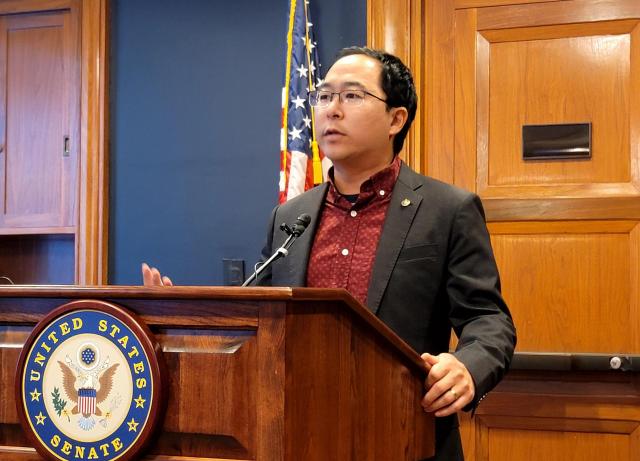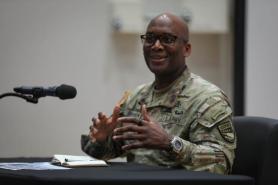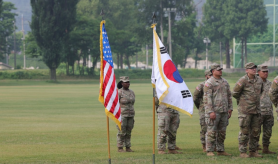
SEOUL, August 29 (AJP) -A United States senator said Thursday that Washington can uphold its nuclear deterrence commitment to South Korea while keeping U.S. Forces Korea (USFK) flexible enough to respond to wider challenges in the Indo-Pacific.
Senator Andy Kim, a Democrat representing New Jersey, made the comments at a Capitol press conference as the U.S. considers expanding the operational scope of the 28,500 USFK troops under the concept of "strategic flexibility." The idea not only covers deterring North Korea but also countering China and handling other regional contingencies.
"We can guarantee extended deterrence while having strategic flexibility," Kim said. "That means we can support the defense of the Korean Peninsula and still have the ability to respond to contingencies across the Indo-Pacific."
His remarks came a day after President Lee Jae Myung told reporters that Seoul was reluctant to accept Washington's push for more flexibility in USFK operations ahead of his summit with U.S. President Donald Trump. Kim suggested, however, that flexibility is unavoidable given the shifting regional balance, describing the Indo-Pacific as a "very dynamic and potentially dangerous" environment.
The senator also underlined that the current force level should remain intact. "I do not believe we should change the force level unless there is a mutual agreement between the two allies. The U.S. must not unilaterally cut troops as happened in past administrations," he said.
Kim added that any unilateral moves by Washington would damage the alliance. "If the U.S. were to take unilateral actions without consultation with Seoul, it would send the wrong message to other countries about the status of the U.S.-South Korea alliance," he said.
Copyright ⓒ Aju Press All rights reserved.



